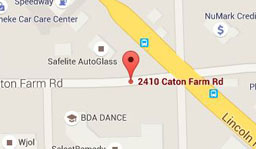5 Frequently Asked Questions About Root Canal Procedures
 If you have an abscessed tooth or a tooth that decay has severely affected, your dentist may recommend that you do a root canal procedure. This procedure is often an alternative to pulling a tooth and keeps the tooth in your mouth, which is often better for your overall oral health in the long term.
If you have an abscessed tooth or a tooth that decay has severely affected, your dentist may recommend that you do a root canal procedure. This procedure is often an alternative to pulling a tooth and keeps the tooth in your mouth, which is often better for your overall oral health in the long term.
Of course, if you’re like most patients, you probably have a few questions about root canal procedures. Hopefully, you will find the answers below.
1. Are Root Canals Painful?
Somewhere along the line, root canals got the unfortunate reputation of being painful. The idea of a dentist drilling into your tooth and removing the pulp — which is what happens during a root canal — does not sound pleasant. And it would not be if not for modern anesthetics.
Thankfully, your dentist will inject your gums with a local anesthetic prior to doing any work on your tooth. This won’t render you unconscious like general anesthesia, but it will ensure you don’t feel a thing during the procedure. You’ll just feel a mild pinch and stinging sensation during the injection itself.
Some patients do experience jaw aches from holding their mouth open during the root canal, but this tends to be minor. If you’ve dealt with toothaches and other dental discomfort, a root canal can actually ease that pain.
2. Do Root Canals Cause Cancer?
No. This is a myth, and a dangerous one at that. Research done during the early 19th century by a dentist named Weston Price suggested that root canals may be linked to cancer, but subsequent research has failed to support that claim. Price’s studies were flawed.
Root canals are not connected to any disease, but, on the contrary, leaving an infected tooth untreated could lead to ongoing pain, sinus infections, and even life-threatening brain infections. If your dentist recommends you undergo a root canal, the safest thing you can do is heed their advice.
3. How Successful Are Root Canals?
You may be hesitant to undergo a root canal if you think you may end up losing the tooth anyways. However, root canals have a very high success rate of 95 percent. Your dentist will cover the treated tooth with a dental crown to protect it after treatment. Treating the infected tooth so you can keep it in your mouth is healthier for the surrounding teeth and for your jawbone.
4. What Actually Happens During a Root Canal?
The procedure is actually very much like any other restorative procedure.
The dentist will start with the administration of anesthetic. Once the area is numb, the dentist will drill into the affected tooth, accessing the pulp chamber and then use specialized tools to remove the infected tooth pulp and nerve tissue. If all of the diseased tissue is able to be removed in one appointment, they will proceed to the next step. If the tooth is severely infected the doctor may place medication within the tooth and set up a follow-up appointment to finish the root canal. If the dentist is able to remove all diseased tissue, they will fill the empty pulp chamber with gutta percha, a rubbery filling material.
It will be necessary to protect the remaining tooth structure with a post & core and a full coverage crown after the root canal is completed.
5. Do Teeth Treated With a Root Canal Require Any Special Care?
No. Just take care of the tooth as you would any other tooth in your mouth. Brush twice a day, floss daily, and see your dentist regularly for checkups, which will probably include X-rays to ensure the treated tooth is still stable and healthy.
The process of having a root canal is pretty simple, straightforward, and safe from the patient’s perspective. If you have any lingering concerns, reach out to your dentist. And if you need a new dentist in southwest Chicago land, contact Crest Hill Family Dental.

